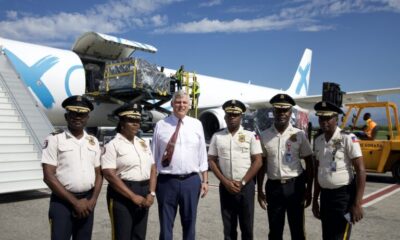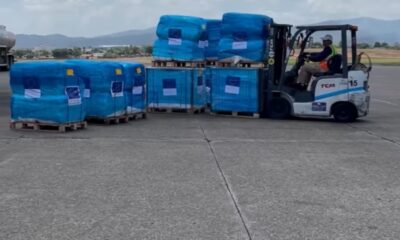#Haiti, GENEVA (9 February 2024) – UN High Commissioner for Human Rights Volker Türk on Friday issued an urgent warning about the deepening human rights catastrophe in Haiti, after figures showed that January was the most violent month in more than two years.
“The already dire human rights situation has deteriorated even further, amid unrelenting and expanding gang violence, with disastrous consequences for Haitians,” said Türk.
At least 806 people, not involved in the violent exchanges taking place, were killed, injured, or kidnapped in January 2024. In addition, some 300 gang members were killed or injured, bringing the total number of people affected to 1,108 – more than three times the number recorded in January 2023.
Gang violence is affecting all communes in the Port-au-Prince metropolitan area, as gang members continue to clash for control of territory and have escalated their activities in areas outside the capital. The intensity of clashes which, in some cases, have lasted several hours, may indicate that some gangs have recently received new ammunition.
People in areas controlled by gangs have been targeted directly. Gangs also continue to use sexual violence against women and girls as a weapon, and spread fear by sharing on local social media gruesome photos and videos of killed individuals and women being raped.
The impact of this torrent of violence on children continues to be of particular concern. In 2023, 167 children were killed and injured by bullets. Some were executed by gangs or so-called “self-defence” groups for their suspected support for rivals. The recruitment of children into gangs remained extremely worrisome.
In this context of widespread violence, in recent weeks there have been anti-government street protests and civil unrest, supported by opposition political parties, in at least 24 towns across the country, including the capital. Schools, public services, and local businesses have been forced to close.
Recently, armed elements have emerged, including some members of the so-called “Protected Areas Security Brigade” (in French, Brigade de Sécurité des Aires Protégées or BSAP), an informal entity established several years ago by a body in charge of environmental issues.
While some protests have turned violent, with public and private buildings ransacked, there are also persistent concerns about the unnecessary and disproportionate use of force by law enforcement.
Between 20 January and 7 February, at least 16 people were killed and 29 injured mainly in the context of confrontations between protesters and police.
Police officers must always abide by the principles of lawfulness, necessity and proportionality when managing protests, in accordance with human rights norms and standards, and protesters must express their grievances peacefully, the UN Human Rights Chief noted.
“Every day that passes, more casualties are being recorded. Now, more than ever, Haitian lives depend on the deployment, with no further delay, of the Multinational Security Support Mission in Haiti (MSS), to support the National Police and bring security to the Haitian population, under conditions that comply with international human rights norms and standards,” he said.
In addition to the need to improve the security situation, it is also essential to note the impact of this new wave of violence on Haiti’s economy, and spreading food insecurity. High inflation due to extortion and road blockades have left millions of Haitians deprived of basic commodities. More than 313,000 people have been forced to flee their homes. Many have sought refuge in crammed and unsanitary sites, which affects their ability to access health and education services.
“As I have said time and again, while improvement of the security situation is the prerequisite to breaking the cycle of crises in Haiti, long-term stability will only be achieved through tackling the root causes of poverty, social and economic discrimination and corruption,” Türk stressed.


 Caribbean News7 days ago
Caribbean News7 days ago
 Caribbean News7 days ago
Caribbean News7 days ago
 Caribbean News1 week ago
Caribbean News1 week ago
 Caribbean News7 days ago
Caribbean News7 days ago
 Bahamas News7 days ago
Bahamas News7 days ago
 News7 days ago
News7 days ago
 Bahamas News1 week ago
Bahamas News1 week ago
 News7 days ago
News7 days ago






















